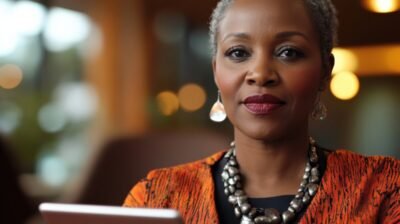Black Women Must Be Twice as Vigilant About Safety—Because We Are Rarely Given the Benefit of the DoubtWe’ve heard it since childhood:“You’ve got
Black Women Must Be Twice as Vigilant About Safety—Because We Are Rarely Given the Benefit of the Doubt

We’ve heard it since childhood:
“You’ve got to be twice as good for half as much.”
We thought it only applied to school.
To jobs.
To professional spaces where we show up polished, practiced, and prepared to prove ourselves.
But let me tell you something as a woman who has walked beside thousands of Survivors—many of them Black women and girls:
“Twice as good” applies everywhere.
Even—especially—in places where we go to seek safety.
🧾 I Watched It Happen. Again. And Again.
I sat with a Black woman in a courtroom—this time, in a predominantly Black county.
She was doing everything “right.”
She told her truth. She followed instructions. She filed paperwork.
She showed up in court—brave and exhausted from carrying fear that most will never understand.
But a sheriff’s deputy left off one critical detail in his report.
That detail mattered. At least it did to the judge.
The judge read the report, saw the omission, and with no hesitation said,
“Well, the officer didn’t say it. So I don’t believe that part.”
That’s it.
No benefit of the doubt. No grace. She got the order but what the deputy left off made a huge difference in how the order was written.
She had done everything right. She was enduring a violence and crisis and managing the entire thing like a high dollar CEO with staff too. But, one detail was left off. And it wasn’t even her fault. (This is what we as a society expect of victims going through hell by the way)
When I got back to the office, I shared what happened in a staff meeting.
My request was simple, respectful:
Can we please ask the deputies to make sure these details are included next time?
My supervisor shrugged it off.
Joked, even.
It wasn’t seen as urgent.
But I’ve seen this pattern too many times to call it unusual. Another exhale to make it through.
And I could. Because most of the time this supervisor was on it and she had my back. Black victim’s back. Like you wouldn’t believe. That doesn’t always happen so ….gratitude and appreciation for every blessing.
Besides, you never know what kind of pressure they are under to stop having crime victim’s back.
⚖️ In Courtrooms, Police Reports, and Protection Orders
It shows up when she testifies in court.
It shows up when she reports violence to police.
It shows up when she applies for a protective order and is told her fear doesn’t “sound urgent.”
Black women are held to impossible standards—yet still not believed.
We are not granted the grace of being human.
We are expected to be bulletproof.
🛑 “She’ll Be Fine” Is a Deadly Lie
There’s a dangerous assumption floating around:
“Black women are strong. They’ll manage.”
Please know:
Resilience does not equal safety.
Perseverance is not a substitute for protection.
We are not invincible.
And we should not have to be.
✊🏾 The Women I Walk With Are Not “Weak”
Some people think my work is with women who are “weak” or “too fragile.”
Nothing could be further from the truth.
The women (of a multitude of races & backgrounds) I have served were some of the most powerful, strategic, creative, wise, and spiritually grounded human beings you will ever meet.
But they were also in a season of chaos, danger, and crisis—and no one should have to survive that alone.
We should not have to out-perform for protection.
We should not have to out-prove to be believed.
We should not have to outrun trauma to be worthy of peace.
🔐 Safety Must Be Earned, Yes—But By Systems, Not Survivors
We’ve been told we must earn our safety.
Prove we need help.
Perform our pain in ways that make others feel sympathy.
Enough.
Systems must earn our trust.
Laws must reflect our reality.
Policies must start from the truth:
Black women are not safe by default—and they deserve to be.
📣 So Here Is the Call:
Black women—just as we show up fully in every other area of life,
We must put just as much energy into guarding and protecting our safety.
That includes:
Demanding accountability from systems
Refusing to shrink our pain for others’ comfort
Creating and defending boundaries—without shame
And remembering that strength isn’t about what you can survive
It’s about what you refuse to normalize
We are not asking for extra.
We are asking for enough.
Enough respect.
Enough protection.
Enough truth.
Enough safety to not always have to prove we’re worth saving.
*Note: This is not an endorsement for the burden on Black people to have to be “twice as good”. But, this is the world that we live in. I did not make it this way. It was like this when I got here.